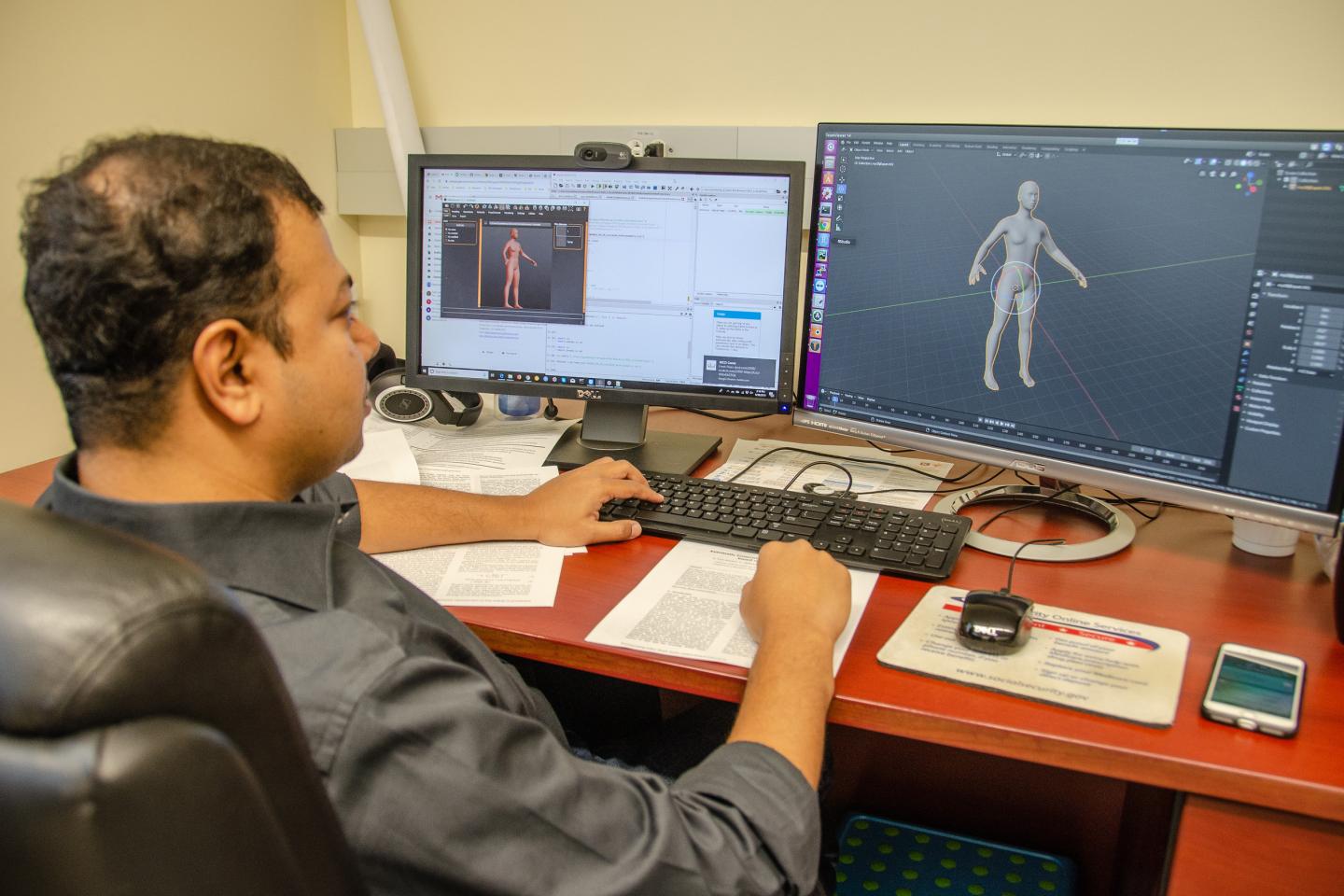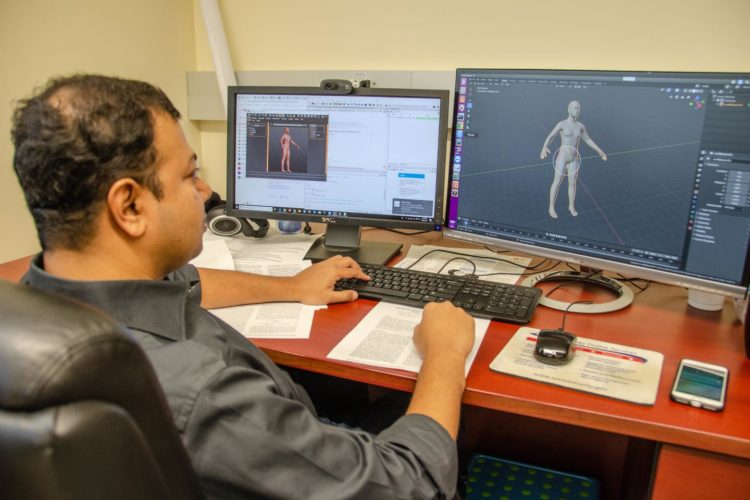
Credit: Paige Nesbit/West Virginia University
Researchers at West Virginia University are using artificial intelligence to counter soaring costs of health care and deliver more efficient and accurate diagnoses of cardiovascular diseases.
Donald Adjeroh, professor and associate chair in the Lane Department of Computer Science and Electrical Engineering, has assembled a team from the Statler College of Engineering and Mineral Resources, WVU Health Sciences, West Virginia State University and three campuses of the University of Arkansas System to work on a $4 million project funded by the National Science Foundation.
According to Adjeroh, AI can be used to assist physicians in making more efficient and effective diagnoses, which could mean the difference between life and death for a patient.
“This means that humans (doctors and health care professionals) can spend more of their time on other things, such as more face-to-face interactions with patients,” Adjeroh said. “This also means that the doctor’s time will be used more efficiently, leading to an overall reduction in costs to hospitals or clinics, which in turn will be passed down to the patients.”
AI technology has unique advantages over human diagnoses, including the ability to sift through large datasets and recognize patterns that are associated with certain diseases or outcomes, which humans may find very difficult to do on their own in a similar time frame.
“One of the most pressing problems facing the United States today is the rapidly increasing cost of health care,” Adjeroh said. “For states such as West Virginia and Arkansas, the rising cost of health care poses an even more critical problem.”
West Virginia and Arkansas consistently rank among the top states in the U.S. for obesity, diabetes, heart attacks, heart disease and deaths, Adjeroh explained.
“The burden of poor health standing in general is felt not only in health care costs, but also in available workforce, lost productivity and even in academic achievement,” said Partho Sengupta, Abnash C. Jain chair, chief of cardiology and director of the Center for Cardiac Innovation at the WVU Heart and Vascular Institute.
Sengupta will work with Adjeroh and Gianfranco Doretto, associate professor of computer science and electrical engineering, to use AI techniques to detect cardiovascular diseases before symptoms begin to surface, which will give health care professionals a head start on preventing the disease from developing to a critical stage.
The integrative project aims to address research challenges associated with AI, including new privacy methods to protect an individual’s health data, establishing trust in AI results, improved efficiency in data analysis by AI systems and a study of the misinformation and health-related propaganda found on social media.
“We see this challenge as a unique opportunity for a technology-driven transformation of the economy in West Virginia and Arkansas, with a real potential for important scientific discovery in both AI and smart health applications,” Sengupta said.
The four-year project led by WVU will build on previous research efforts by the Statler College and the Center for Cardiac Innovation.
To coincide with the research activities, the project will involve high school students in STEM-related activities through the Health Sciences and Technology Academy, led by its director, Ann Chester. Students participating in the program will conduct experiments by using smartwatches or other wearable devices provided by the grant to monitor their own health.
In addition, students will be trained on AI and big data techniques, and how these can be applied to address problems in healthcare.
“Digital health is an important and growing area of research that has real potential for translation into practice,” said Pradeep Fulay, associate dean for research in the Statler College. “Don and Partho have shown great leadership in forming this multidisciplinary, multi-institutional team and I look forward to seeing what breakthroughs will emerge that can ultimately help the citizens of West Virginia.”
###
Other WVU faculty involved in the project include Don McLaughlin, Nasser Nasrabadi and Xin Li, from the Statler College, as well as Marie Abate, Ivan Martinez and Valerie Satkoske, from Health Sciences.
Media Contact
Paige Nesbit
[email protected]
304-293-4135
Original Source
https:/




